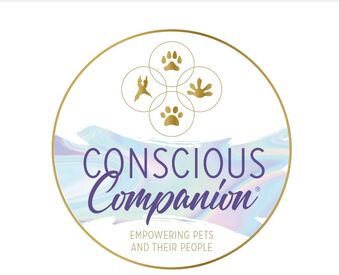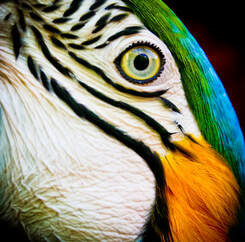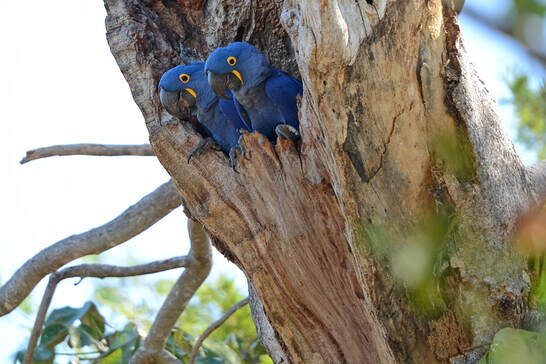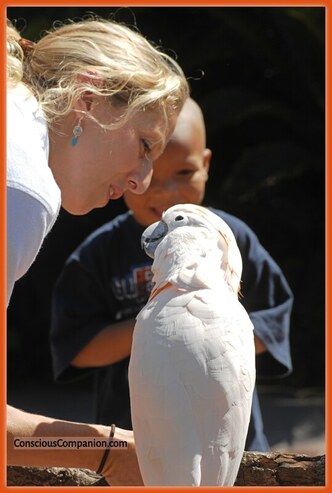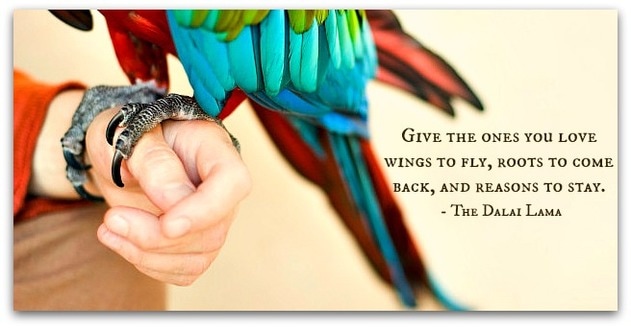Feathered Friends
"Parrots are not the mental or emotional equivalent of a child, as many people have expressed. They are brilliant sensitive, conscious and unique individuals who are deserving of having their own preferences, desires, needs, and their own identity. This needs to be considered when we are considering their treatment and care. They deserve nothing less."
There are 3 main types of behavioral issues that many companion parrots experience:
- Instinctual or natural behaviors that become problems for the people who care for them
- Unintentionally trained behaviors
- Problems caused by the ‘Conditions of Captivity’
The brutal truth is that birds were not designed to live in your house or to be perfect pets. These creatures evolved to survive in some of the most dangerous jungles, desserts, and rain forests of the world. As a result we can’t always expect them be quiet when we’re on the phone or play nicely with small children. That said, there still are ways to correct or at least alleviate most of the problems that you may have with your parrot. ~John Perry, Feather Me
Common Bird Behavior and Husbandry Challenges that Conscious Companion Positively Assesses:
• Excessive/obsessive vocalizations
• Aggression (towards you, your partner, or other animals in the home)
• General fearful behavior and stress (see examples here)
• Recently re-homed parrots
• Acclimating a parrot to an optimal diet
• Feather plucking
• Stress-free grooming (nails) - I teach you how to do this.
• How to create an enriching and safe parrot enclosure
• Target training
• Clicker training
• Daily Enrichment
• Energy Healing and Chakra Alignment Sessions
• Increase natural parrot behaviors foraging behavior
Do you have questions or concerns about your feathered family member? Conscious Companion is here to assist.
Conscious Companion's Published Parrot Articles
Putting Together the Parrot Puzzle Pieces
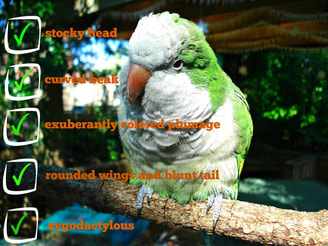
Breeds of dogs and cats are grouped under one genus and one species; Canis familiaris or Felis catus. Although a Maine coon looks very different from a Siamese, they are both the same species. Comparatively, there are hundreds of species of parrots. Some parrot species are even classified in a different genus. We might be able to make some generalizations about the nutritional, emotional and physical needs of dogs and cats because of their species, but we cannot generalize parrots. Each species of parrot has very specific dietary, emotional and physical need.
Learn more in the full article, Putting Together the Parrot Puzzle Pieces: The Key to Successful, Species-Appropriate Enrichment for Captive Parrots.
Learn more in the full article, Putting Together the Parrot Puzzle Pieces: The Key to Successful, Species-Appropriate Enrichment for Captive Parrots.
“For me, the sight of a parrot living alone, living in a cage, deprived of flight, miserably bored, breaks my heart. And the parrot’s too, perhaps.” — Jane Goodall
The Power of Play: Thinking Outside the Cage
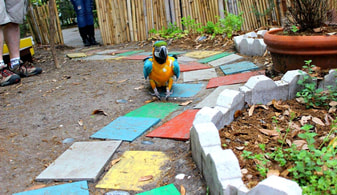 Pictured: Sarge the blue and gold macaw enjoying his daily walk about in a safe area under supervision
Pictured: Sarge the blue and gold macaw enjoying his daily walk about in a safe area under supervision
Parrots need to play every day. They may be living in an enclosure at your house or shelter but they still have innate behavioral needs that must be met. It is crucial to the physical and emotional health of every bird. Utilizing and encouraging play increases coordination and circulation, and provides a healthy and productive energy outlet. If we want to encourage natural behaviors such as flying, flapping, foraging, climbing, chewing, tearing, tossing, walking, hiding, holding, preening, searching and singing, we can do all of this through play. Read full article here.
